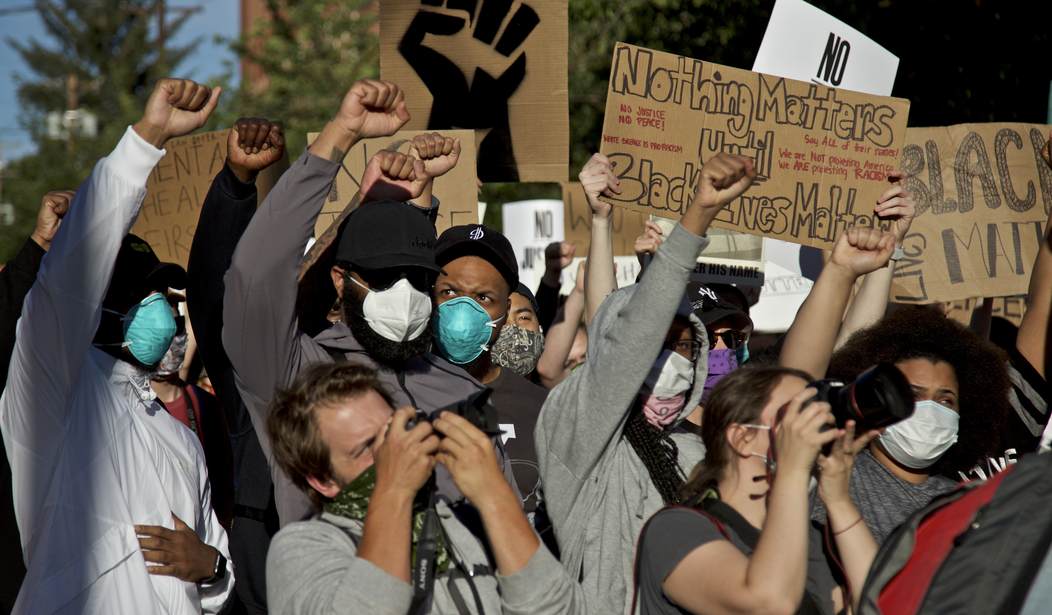Human beings are by nature tribal. We are tribal because our ancestors were tribal. Our ancestors were tribal because tribalism had evolutionary survival value.
Fifty thousand years ago, our ancestors lived in small communities of about 150 people. These tribes competed with other tribes for resources, and the competition was often violent and brutal. Loyalty to one’s own group and hostility to members of other groups was a valuable characteristic in tribal combat.
Someone who loved his neighbor (that is, a member of another tribe) as much as himself would not have been of much value in tribal warfare. If such people existed – say, as a result of some genetic abnormality – they most likely didn’t live long enough to pass on their genes.
I have often suspected that the zeal with which some people today enjoy sports is a modern manifestation of ancient tribal instincts. Why do Dallas Cowboy fans cheer so avidly for their team – when the players on the field are personally unknown to them, have nothing in common with them and wouldn’t even be in Dallas if they weren’t paid to be there?
If we are instinctively tribal when it comes to sports, doesn’t it seem likely that we are tribal with respect to a great many other aspects of life? And if that’s so, what can be done about it?
That brings us to the notion of systemic racism. Wikipedia defines it as:
a form of racism that is embedded in the laws and regulations of a society or an organization. It manifests as discrimination in areas such as criminal justice, employment, housing, health care, education, and political representation.
There is one glaring omission from that list: the marketplace.
When our ancestors weren’t warring with each other, they were trading with each other. In fact, mutually beneficial exchange between different communities is almost as old as civilization itself.
Economics teaches that in any voluntary exchange, both parties expect to be better off. That’s why people trade. And people don’t usually try to kill the people they are trading with.
Recommended
It’s probably no exaggeration to say that the single most important institution for preventing war in the history of the human race is the free market.
The market is also the single most important institution for suppressing our tribal instincts. Going back thousands of years, the market was always the most integrated institution in all social interactions.
In the market, people found it in their self-interest to meet the needs of others so they could get something in return that met their own needs. The fact that other people looked different, dressed differently, spoke a different language, had a different religion, etc., did not prevent people all over the world from pursuing their economic interests through trade.
Flash forward to the modern era and we find that these ancient tendencies are as strong today as they ever were. In fact, one of the most remarkable findings of social science is how little prejudice seems to matter in the market, compared to other institutions in our society.
June O’Neill, an economist who used to direct the Congressional Budget Office, and her husband Dave O’Neill produced a comprehensive survey of the economic research on wage income.
The O’Neills found that the difference in pay for Black and white men completely disappears after adjusting for years of schooling and test scores. Among women, the gap actually reverses. After adjusting for education and test scores, Black women get paid more than white women.
What about men as a group vs. women as a group? The gender gap shrinks to only 3½ % when adjustments are made for work experience, career breaks and part-time work.
Is there discrimination in the workplace? Of course there is. That’s why there are lawsuits. But there is not enough of it to affect overall earnings.
Common sense tells us why. Suppose women in a certain industry were paid less than men for the same work. An entrepreneur could choose to hire only women. With lower labor costs, she could drive her competitors out of business and make a handsome profit along the way. The same thing would be true if there were Black/white differences in pay.
Wage differentials make discrimination expensive. If Black workers earned less than white workers for the same work, every time an employer hired a white worker, she would be paying a price for doing so. Money-grubbing capitalists don’t tend to throw away their profits like that.
Things are different in the non-market sectors of our society. All too often low-income families in our largest cites are forced to send their children to the worst schools; they are living in the worst housing; and they are subject to the worst environmental harms.
All too often city governments act indifferently when low-income minority citizens become victims of bad cops, bad teachers, bad schools and bad pollution.
In the past, some of these policies – especially school and housing policies – were the result of overt racism. But that is not likely to be the motive today. Almost every large city in America is run by liberal Democrats and more often than not the officials are themselves Black.
But if racism isn’t their motive, what is? Self-interest. Unlike the marketplace, in political systems decision-makers don’t pay a price for discriminatory behavior.
Rather than systemic racism, large cities today are best described as a systemic spoils system. The adverse effects on poor families are just as bad whether the officials are white or Black or of some other ethnic origin.
Here is the answer to that. We need to substitute market-based institutions for political decision-making wherever possible. We know that is easily done in education, housing and transportation – because it is already happening in many places. But there are also opportunities for market solutions in health care, occupational licensure, and even policing.
However, to encourage more of these opportunities, low-income voters must stop voting for their oppressors.

























Join the conversation as a VIP Member